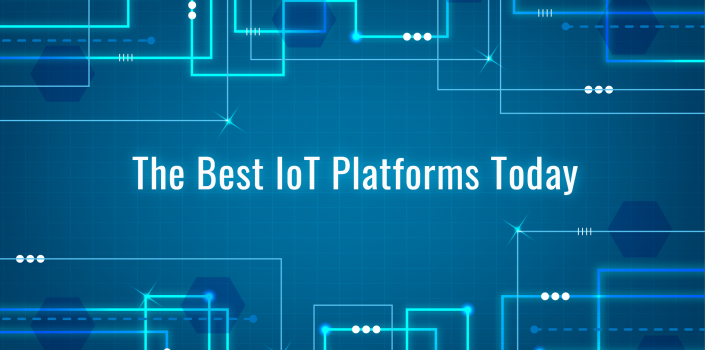"Which Is Better : Traditional Or Codeless ML Based Test Automation?"
"How BlockChain Grew To Became A Significant Asset In Developing iOS & Android Applications"

When we think of technological advancements, it simply endless.
This is an era of "smart objects" created by implementing the Internet of Things(IoT ). Here let's take a look at the best IoT Platforms to build your projects.
IoT is a network of devices that are interconnected with each other through the internet. All over the world can be turned into an IoT with the help of processors, wireless networks, sensors and physical devices. It works by collecting and sharing data that enables devices to act with a certain level of intelligence and communicate without human interference.
If the lightbulb or television in your home can be turned on with the help of an app in your smartphone, then they are IoT devices.
Converting a simple physical device into IoT requires work; it involves a lot of sensors, processors, the use of wireless networks, and the movement of chunks of data. Considering all of these, the best option today is the cloud IoT platforms.
Enables efficient data movement: All the data are stored on a cloud server which is accessible from almost anywhere in the world.
Can be implemented quickly:While a company decides to incorporate IoT they would have to upgrade their infrastructure to accommodate the new sensors and devices. Cloud IoT offers quick and easy deployment at budget costs.
Enhanced scalability: Cloud IoT does not require complex network structures. These are highly flexible, allowing the companies that deploy them to scale up and down according to their storage requirements.
Microsoft Azure IoT Hub The Microsoft Azure IoT Hub offers information monitoring, rules engine, device shadowing and identity registry. This IoT platform incorporates several existing products such as the Stream Analytics, Power BI, IoT Hub, notifications hub and also some pre-packed machine learning. The enhanced, Azure Digital Twins allows one to create digital models of any physical environment; including places, things and people.
Oracle IoT cloud platform The Oracle IoT cloud platform is designed and developed to give an end-to-end solution. These include device virtualization, endpoint management, high speed messaging and analytics that give real-time insights.
Cloud IoT Core Google Cloud IoT Core is fully manageable IoT platform. This platform is labelled as a major rival against the other similar platforms since it mainly concentrates on intelligence. To achieve this intelligence, it utilizes ad-hoc queries using Google BigQuery, Cloud Functions workflows the devices can automate changes based on real-time events, data visualizations are done using Google Data Studio and machine learning is done with Cloud Machine Learning Engine.
Bosch IoT Suite This cloud platform is one with services designed to meet the requirements of every IoT project. The platform was initially designed and built to provide the IoT solution developers flexibility and easiness to perform their daily tasks.
IBM Watson IoT This cloud IoT platform enables users to connect their devices and the IoT device data into a repository from where this cloud IoT helps them gain insight into an IoT network to not just improve their operations, but also they can launch various new business models. The users of this cloud platform receive real-time data exchange, data storage, device management and secure communications.
AWS IoT Core This cloud IoT platform helps turn cars, sensory grids, turbines to "smart" objects by helping in connecting and managing the sensors on these objects. The AWS IoT Core provides a secure device gateway, device shadows, device SDK, a registry for recognizing the different devices, message broker and rules engine that would evaluate the inbound messages. Other cloud IoT platforms include Salesforce IoT, General Electric Predix, Dell IoT, Siemens MindSphere, Hitachi Lumada and so on.